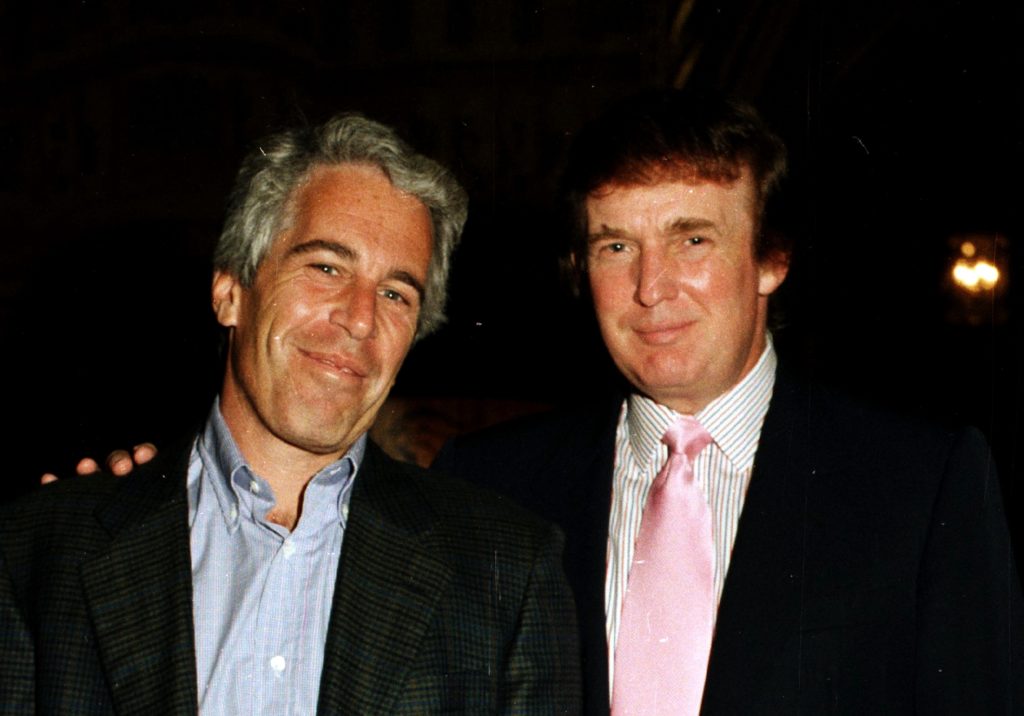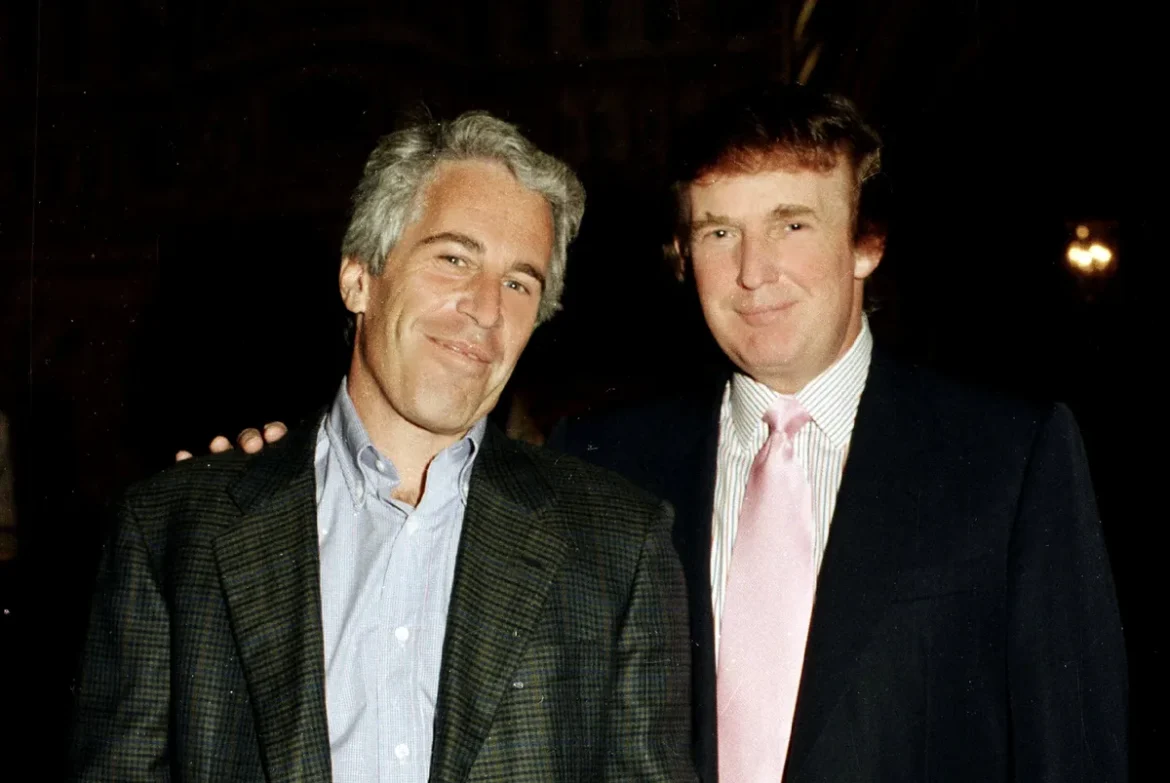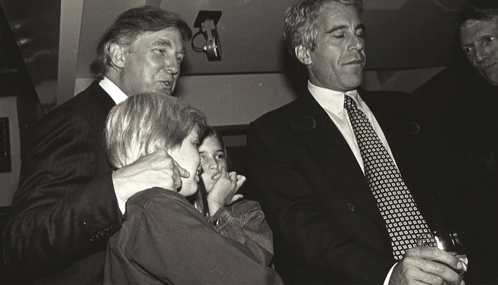The recent release of Jeffrey Epstein’s 2003 birthday guest book by a U.S. Congressional committee has pulled back the curtain on one of the most sinister documents in modern history. It exposes the vast network of powerful individuals connected to the disgraced financier.
Epstein, an American businessman born in 1953 who died mysteriously in 2019 while awaiting trial for sex trafficking, is accused of operating an international ring for the sexual exploitation of minors. His immense wealth, of unclear origin, facilitated close relationships with global elites, including politicians, academics, and billionaires.
Contents of the Controversial Epstein Black Book
This commemorative book, created for Epstein’s 50th birthday, contains personal messages and photographs from numerous high-profile figures. Among the most controversial items is a note attributed to Donald Trump, the former U.S. President. Placed next to an explicit image of a nude woman, the note concludes with Trump’s signature.
Trump immediately denounced the document as fake upon its release and has filed a lawsuit against the Wall Street Journal for publishing it. However, it is notable that Trump had previously publicly acknowledged his relationship with Epstein. In a 2002 interview with New York Magazine, he stated: “I’ve known Jeff for fifteen years. Terrific guy. He’s a lot of fun to be with. It is even said that he likes beautiful women as much as I do.”
The book also features messages from Bill Clinton, another former U.S. President, who referred to Epstein as a “dear friend.” Other notable figures include Peter Mandelson, the former British ambassador to the U.S.
The Culture of Complicity: How the System Protected Epstein
The most critical analysis of this document centers on the culture of silence and complicity that allowed Epstein’s predatory network to thrive for decades. Many of these powerful figures, likely aware of his criminal activities, not only remained silent but continued their associations with him.
This revelation starkly illustrates how immense wealth and social status can act as an impenetrable shield, protecting criminals from justice. This shield is not passive; it operates actively by:
- Hiring top-tier lawyers to circumvent the law.
- Paying substantial bribes to corrupt officials to destroy evidence.
- Using influence to intimidate witnesses and victims.
Systemic Corruption and the Path Forward
Ultimately, corruption can become the backbone of a system, utterly destroying public trust in governance’s very foundations. Combating this chronic disease requires a path of radical transparency and ruthless accountability. This necessitates:
- Strengthening independent oversight institutions.
- Passing robust wealth disclosure laws.
- Creating strong whistleblower protection mechanisms.
- Ensuring genuine press freedom.
- Empowering a vibrant civil society.
The Jeffrey Epstein case proves that without collective political will and public demand, wealth and power will always have the potential to turn justice into a luxury commodity, available only to a select few.
Faezeh Aghamohammadi




